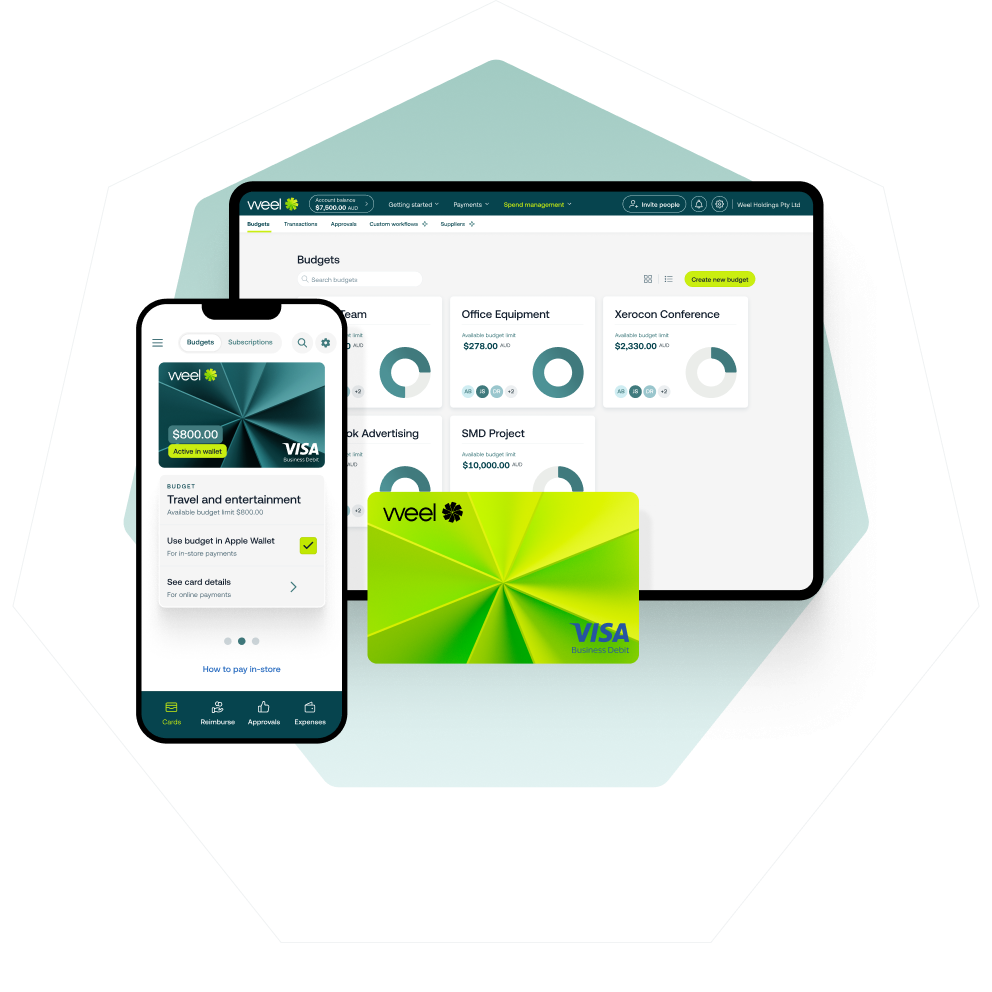As school fees in Australia continue to outpace inflation, private schools are under increasing pressure to elevate their facilities and services, whilst keeping their costs down. With scrutiny over spending at an all-time high, the efficiency of financial controls and expense management processes has become a key concern for business managers around Australia looking to sustain the financial health of their school.
In this article, we’ll cover the key problem areas around financial controls for private schools, as highlighted by the Association of Independent Schools of New South Wales (AISNSW), as well as the practical solutions for managing sustainable growth.

What is expense management?
Expense management is a cornerstone of ensuring the smooth operation and success of any private school, and it goes beyond merely understanding financial data. It involves implementing robust financial controls to safeguard assets, ensure accurate reporting and comply with regulations.
Why has the efficiency of financial controls become a focus for schools in 2024?
Financial controls encompass policies and procedures designed to safeguard assets, ensure reliable reporting and promote operational efficiency. By establishing strong internal controls, schools can rely on financial information with confidence, empowering informed decision-making and protecting resources. The benefits of implementing these controls include gaining a better understanding of a school's financial position to provide accurate spending information for decision-making and compliance requirements.
Financial controls play a pivotal role in achieving a school’s financial goals and fulfilling its governance responsibilities. They enable schools to align performance with objectives, facilitate proper financial reporting and safeguard against fraud.
In essence, a well-established system of robust financial controls not only enhances operational efficiency, but also strengthens the school's financial integrity and resilience against unexpected events.
How can schools implement robust and efficient financial controls?
The Model Financial Controls and Procedures for Independent Schools guide by the Association of Independent Schools of New South Wales (AIS NSW), provides a framework for addressing the major hurdles schools face when it comes to managing their finances, including:
- cash handling
- payments control
- procurement
- and chart of accounts efficiency.
Below, we’ll dive into each of these controls, the challenges they solve and their role in ensuring the financial efficiency of private schools:

Cash Handling
Challenge
Managing finances in schools can be especially challenging when cash is involved. Inefficient petty cash or imprest systems, combined with insecure storage facilities and inadequate documentation, can make cash handling even more difficult, leading to reporting discrepancies and potential losses.
Solution
The most effective way to mitigate risks associated with cash handling is by implementing an expense management solution that eliminates cash usage altogether. These tools provide a secure and reliable alternative to traditional cash management methods.
Where cash usage can’t be avoided, it’s recommended that, at the very least, schools streamline their cash handling processes and enhance security. Implementing stringent controls and guidelines, such as limiting cash usage for small transactions and conducting regular reconciliations, are both a good place to start.
Lack of Control over Payments
Challenge
With hundreds of pupils, comes hundreds of payments, which can make it especially difficult to keep track of all transactions coming in and going out. Maintaining oversight of payments is crucial to ensuring compliance with financial regulations and prevent the misuse of funds. When expenses are incurred without appropriate authorisation, this can lead to out-of-policy spending, duplicate payments, or even fraud.
Solution
Establishing a clear approval process for expenses and invoices is an effective way to establish more control over payments. By defining roles and responsibilities and implementing standardised procedures, schools can ensure that all payments are in line with approved budgets and comply with internal policies and external regulations. This not only strengthens financial controls but also fosters accountability and transparency across the organisation.
Another effective solution would be to implement an expense management system that can automate approval workflows. By leveraging technology, such systems streamline the approval process.
Automated expense management systems provide audit trails and real-time visibility into spending, enabling finance teams to monitor payments more effectively and detect any irregularities. Overall, integrating an expense management system into the payment process, which can help to foster a culture of transparency and accountability within the wider school.

Improper Procurement Process
Challenge
Procurement procedures in private schools often suffer from ambiguity and inconsistency, resulting in inefficiencies and potential financial risks. Without clear policies and guidelines in place, procurement decisions may be made without proper oversight.
Solution
To address this challenge, it’s recommended that schools develop their own comprehensive procurement policies and procedures. This includes defining clear roles and responsibilities, establishing approval thresholds and implementing a systematic process for vendor selection and contract management. By standardising procurement practices and promoting transparency, schools can optimise their purchasing decisions, minimise risks and maximise ROI.
Inefficient Chart of Accounts
Challenge
Many private schools struggle with outdated or convoluted chart structures that don’t align with their evolving financial needs. An inefficient chart of accounts can not only affect the accuracy of financial reporting but also your strategic decision-making.
Solution
Choosing the right accounting software is critical for simplifying account structures and aligning codes with organisational activities and reporting requirements. Modern AP solutions can help to provide schools with the tools and functionalities needed to streamline their chart of accounts and improve financial visibility, eliminating redundancies and financial irregularities.

Conclusion
Effective expense management is the key to private schools to achieving their financial goals. By implementing robust financial controls via an expense management solution for the areas of cash handling, payments control, procurement and chart of accounts efficiency, schools can enhance transparency, accountability, and operational efficiency.
While this process may of introducing new processes and tools may seem daunting, effective expense management can be the difference between a school struggling to meet its financial obligations and one that is able to invest in the future of its students with confidence.
Getting started with an expense management solution
Whether it’s minimising your cash handling, or implementing more robust payment controls, an all-in-one expense management software can automate these processes, freeing up your finance team to focus on what really matters - paving the way for sustainable growth and success.
Keen to learn more? Book a demo with our team of experts or explore the Weel platform with our interactive tour.














